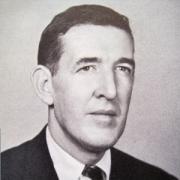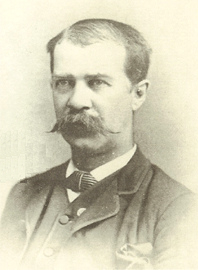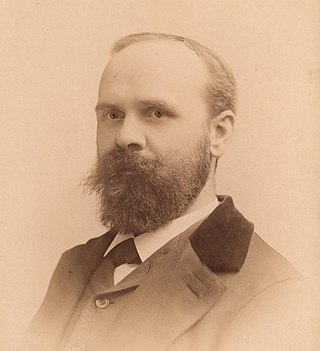Individualist anarchism is the branch of anarchism that emphasizes the individual and their will over external determinants such as groups, society, traditions, and ideological systems. Although usually contrasted with social anarchism, both individualist and social anarchism have influenced each other. Mutualism, an economic theory sometimes considered a synthesis of communism, market economy and property, has been considered individualist anarchism and other times part of social anarchism. Many anarcho-communists regard themselves as radical individualists, seeing anarcho-communism as the best social system for the realization of individual freedom. Some anarcho-capitalists claim anarcho-capitalism is part of the individualist anarchist tradition, while others disagree and claim individualist anarchism is only part of the socialist movement and part of the libertarian socialist tradition. Economically, while European individualist anarchists are pluralists who advocate anarchism without adjectives and synthesis anarchism, ranging from anarcho-communist to mutualist economic types, most American individualist anarchists of the 19th century advocated mutualism, a libertarian socialist form of market socialism, or a free-market socialist form of classical economics. Individualist anarchists are opposed to property that violates the entitlement theory of justice, that is, gives privilege due to unjust acquisition or exchange, and thus is exploitative, seeking to "destroy the tyranny of capital,—that is, of property" by mutual credit.
Individualism is the moral stance, political philosophy, ideology and social outlook that emphasizes the intrinsic worth of the individual. Individualists promote realizing one's goals and desires, valuing independence and self-reliance, and advocating that the interests of the individual should gain precedence over the state or a social group, while opposing external interference upon one's own interests by society or institutions such as the government. Individualism makes the individual its focus, and so starts "with the fundamental premise that the human individual is of primary importance in the struggle for liberation".
Individualist feminism, also known as ifeminism, is a libertarian feminist movement that emphasizes individualism, personal autonomy, freedom from state-sanctioned discrimination against women, and gender equality.
Anarchist economics is the set of theories and practices of economic activity within the political philosophy of anarchism. Anarchists are anti-authoritarian and anti-capitalist, with anarchism usually referred to as a form of libertarian socialism, i.e. a stateless system of socialism. Anarchists support personal property and oppose capital concentration, interest, monopoly, private ownership of productive property such as the means of production, profit, rent, usury and wage slavery which are viewed as inherent to capitalism.
The nature of capitalism is criticized by left-wing anarchists, who reject hierarchy and advocate stateless societies based on non-hierarchical voluntary associations. Anarchism is generally defined as the libertarian philosophy which holds the state to be undesirable, unnecessary and harmful as well as opposing authoritarianism, illegitimate authority and hierarchical organization in the conduct of human relations. Capitalism is generally considered by scholars to be an economic system that includes private ownership of the means of production, creation of goods or services for profit or income, the accumulation of capital, competitive markets, voluntary exchange and wage labor, which have generally been opposed by most anarchists historically. Since capitalism is variously defined by sources and there is no general consensus among scholars on the definition nor on how the term should be used as a historical category, the designation is applied to a variety of historical cases, varying in time, geography, politics and culture.

William Hollingsworth "Holly" Whyte Jr. was an American urbanist, sociologist, organizational analyst, journalist and people-watcher. He identified the elements that create vibrant public spaces within the city and filmed a variety of urban plazas in New York City in the 1970s. After his book about corporate culture The Organization Man (1956) sold over two million copies, Whyte turned his attention to the study of human behavior in urban settings. He published several books and a film on the topic, including The Social Life of Small Urban Spaces (1980).
Mutualism is an anarchist school of thought and anti-capitalist market socialist economic theory that advocates for workers' control of the means of production, a market economy made up of individual artisans and workers' cooperatives, and occupation and use property rights. As proponents of the labour theory of value and labour theory of property, mutualists oppose all forms of economic rent, profit and non-nominal interest, which they see as relying on the exploitation of labour. Mutualists seek to construct an economy without capital accumulation or concentration of land ownership. They also encourage the establishment of workers' self-management, which they propose could be supported through the issuance of mutual credit by mutual banks, with the aim of creating a federal society.
Japanese values are cultural goals, beliefs and behaviors that are considered important in Japanese culture. From a global perspective, Japanese culture stands out for its higher scores in emancipative values, individualism, and flexibility compared to many other cultures around the world. There is a similar level of emphasis on these values in the cultures of the United States and Japan. However cultures from Western Europe surpass it in these aspects. Overall, Japanese society exhibits unique characteristics influenced by personal connections, consensus building, and a strong sense of community consciousness. These features have deep historical roots and reflect the values ingrained in Japanese society.
Autarchism is a political philosophy that promotes the principles of individualism and the moral ideology of individual liberty and self-reliance. It rejects compulsory government and supports the elimination of government in favor of ruling oneself to the exclusion of rule by others.
Anarchism is generally defined as the political philosophy which holds the state to be undesirable, unnecessary and harmful as well as opposing authority and hierarchical organization in the conduct of human relations. Proponents of anarchism, known as anarchists, advocate stateless societies based on non-hierarchical voluntary associations. While anarchism holds the state to be undesirable, unnecessary and harmful, opposition to the state is not its central or sole definition. Anarchism can entail opposing authority or hierarchy in the conduct of all human relations.
Individualist anarchism in the United States was strongly influenced by Benjamin Tucker, Josiah Warren, Ralph Waldo Emerson, Lysander Spooner, Pierre-Joseph Proudhon, Max Stirner, Herbert Spencer and Henry David Thoreau. Other important individualist anarchists in the United States were Stephen Pearl Andrews, William Batchelder Greene, Ezra Heywood, M. E. Lazarus, John Beverley Robinson, James L. Walker, Joseph Labadie, Steven Byington and Laurance Labadie.
Associationalism or associative democracy is a political movement in which "human welfare and liberty are both best served when as many of the affairs of a society as possible are managed by voluntary and democratically self-governing associations." Associationalism "gives priority to freedom in its scale of values, but it contends that such freedom can only be pursued effectively if individuals join with their fellows"

Dyer Daniel Lum was an American labor activist, economist and political journalist. He was a leading figure in the American anarchist movement of the 1880s and early 1890s, working within the organized labor movement and together with individualist theorists.
The following outline is provided as an overview of and topical guide to anarchism:
The following outline is provided as an overview of and topical guide to libertarianism:
Individualist anarchism in Europe proceeded from the roots laid by William Godwin and soon expanded and diversified through Europe, incorporating influences from individualist anarchism in the United States. Individualist anarchism is a tradition of thought within the anarchist movement that emphasize the individual and his or her will over external determinants such as groups, society, traditions, and ideological systems. While most American individualist anarchists advocate mutualism, a libertarian socialist form of market socialism, or a free-market socialist form of classical economics, European individualist anarchists are pluralists who advocate anarchism without adjectives and synthesis anarchism, ranging from anarcho-communist to mutualist economic types.
Types of socialism include a range of economic and social systems characterised by social ownership and democratic control of the means of production and organizational self-management of enterprises as well as the political theories and movements associated with socialism. Social ownership may refer to forms of public, collective or cooperative ownership, or to citizen ownership of equity in which surplus value goes to the working class and hence society as a whole. There are many varieties of socialism and no single definition encapsulates all of them, but social ownership is the common element shared by its various forms Socialists disagree about the degree to which social control or regulation of the economy is necessary, how far society should intervene, and whether government, particularly existing government, is the correct vehicle for change.
Social anarchism, also known as left-wing anarchism or socialist anarchism, is the branch of anarchism that sees liberty and social equality as interrelated.

Benjamin Ricketson Tucker was an American individualist anarchist and self-identified socialist. Tucker was the editor and publisher of the American individualist anarchist periodical Liberty (1881–1908). Tucker described his form of anarchism as "consistent Manchesterism" and stated that "the Anarchists are simply unterrified Jeffersonian Democrats."
A classless society is a society in which no one is born into a social class like in a class society. Distinctions of wealth, income, education, culture, or social network might arise and would only be determined by individual experience and achievement in such a society. Thus, the concept posits not the absence of a social hierarchy but the uninheritability of class status. Helen Codere defines social class as a segment of the community, the members of which show a common social position in a hierarchical ranking. Codere suggest that a true class-organized society is one in which the hierarchy of prestige and social status is divisible into groups. Each group with its own social, economic, attitudinal and cultural characteristics, and each having differential degrees of power in community decision.



